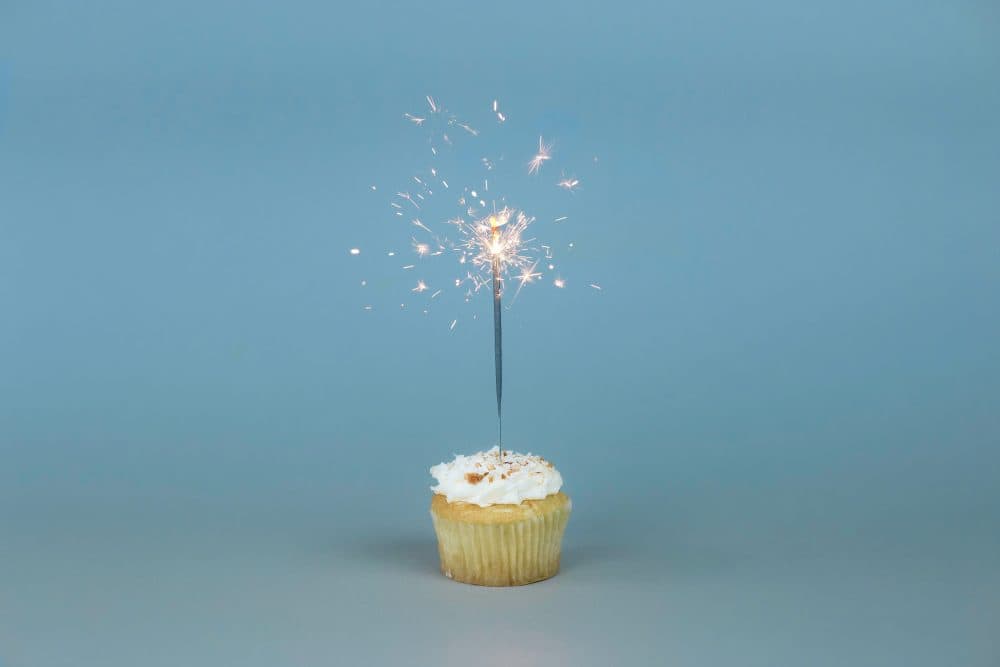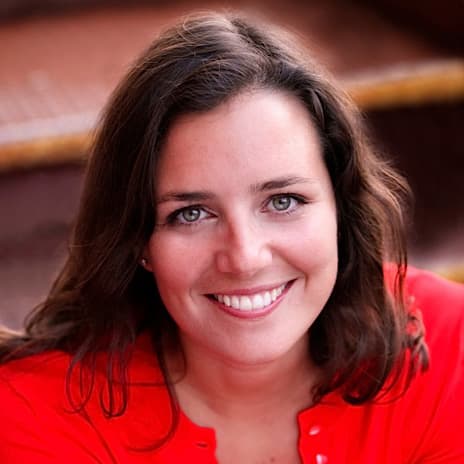Advertisement
Commentary
The Thing Itself: On Turning 40, Without The Fear

A good friend recently told me that she’s started photo-shopping her neck. I thought she was crazy until I took a closer look at my own and realized she might be onto something.
For years, I’ve felt about turning 40 the way Sally in “When Harry Met Sally” feels: “It’s just sitting there, like this big dead end,” Meg Ryan weeps to Billy Crystal.
It’s probably inane to feel anxious about my advancing age with all the horror in the world — separated children, white supremacy, war, melting ice caps, meddling Russians — and yet I can’t seem to shake it. I don’t know why, entirely. It’s not a looming sense of my own mortality that fills me with dread. Or any real worry over impending wrinkles and more gray hair, in spite of my new, intimate connection to another Nora Ephron classic, “I Feel Bad About My Neck.”
I started lying about my age (just by a year or two) when I turned 30, about 10 years ago. It made me feel better. But lately the fib feels less like playful subterfuge and little more like shame.
What have I done with my life? Is it enough? Am I enough?
I’d planned to just let my birthday slide by, as I have the previous few. But I’ve spent the year watching friends turn 40, most with far more grace than I. My Instagram feed is full of #thisis40 spa weekends, house parties and celebratory dinners. My mother keeps telling me to get over it, “The best is yet to come!” My friend Johanna keeps sending me articles about aging, which she claims is her attempt at aversion therapy.
All this makes me question why I find my birthday so toe-curling. Can’t I get on board with the notion that 40 is the new 30, and who cares what people think anyway? Why am I choosing to live in fear of an innocuous question about what year I graduated from college?
Beth Teitell, of the Boston Globe, recently suggested the term middle-aged was in desperate need of a rebrand — because it’s become an insult and because it’s imprecise (no one really knows when it begins or ends). Elizabeth Gilbert, of “Eat, Pray, Love” fame, has weighed in on the topic, too. She swears getting older is the best possible thing that can happen to a woman, because she grows wiser and more interesting with time. Gilbert will be 49 in July. I wonder if she felt the same way when she was my age, on the cusp of wisdom, but not there quite yet?
When Johanna emailed around an essay by Pamela Druckerman, excerpted from her new book about life in the 40s, I instinctively zinged back: “I do not like this.”
Then I read it. Druckerman argues, persuasively, that while discomfiting at first, there are good things about getting older. The over-40 set is less neurotic, for example, excellent at reading other people and have more advanced levels of crystallized intelligence. “Forty is a fearsome age. It’s the age when we become who we are,” she writes, quoting the French poet Charles Peguy. OK, fine. I suppose those are things to be excited about, even if I am now old enough to be the biological mother of half my coworkers.
But she also tickled my deepest angst. “At 40, we’re no longer preparing for an imagined future life,” she writes. “We’ve arrived at what Immanuel Kant called the ‘Ding an sich’ — the thing itself.”
That is the truth. “The thing itself” begs big questions. What have I done with my life? Is it enough? Am I enough?
For all the ways in which our culture prizes youth — the ways in which we try to prolong it, the glory we shower on wunderkinds, the fashion we covet, the music we love, and on and on — young people are pretty terrible at anticipating the future. The predictions we make for ourselves at 20 or 25 or 30 (and probably 40!) are rarely accurate. Try as we might, we don’t know what will happen to us, or who we will meet, or what will make us happy. It turns out life is more about how we respond than what we dictate.
Fifteen years ago, for example, I couldn’t have anticipated an early-30s plagued by fertility struggles (followed by the birth of three kids), or moving to the ‘burbs (on purpose), or a massive career change at 39. I always thought 40-somethings were experts who managed legions of direct reports, sent birthday cards on time and were capable of whipping up Thanksgiving dinner. I am none of these things. (I should also admit I’ll probably never like my arms, enjoy public speaking, or finish “The Brothers Karamazov.”)
It turns out life is more about how we respond than what we dictate.
But I’m more content than I have been at any other time in my life, if also busier and much more tired. Time seems to be moving faster than ever, and yet I have greater appreciation for how much can change in a year, and just how little is for certain. A few years ago most things were good or bad, now more things simply “are” — and I’m OK with that ambiguity.
At least with my angst comes awareness, particularly of the moments — perhaps unnoticed before — that I now know to log as memories. Dance parties to Cyndi Lauper over breakfast waffles; quiet car rides with my husband; back porch chats with my parents on a summer evening; New Years’ Eve cheers with a dear friend.
The other day my very perky 21-year-old babysitter gave me a sample product she’d picked up at her hair salon. “I grabbed this for you!” she cooed. The small purple packet read “Fluid plumping mask: Thinning, Devitalized Hair.” I did not shriek. I did not groan. I smiled and said thank you.
